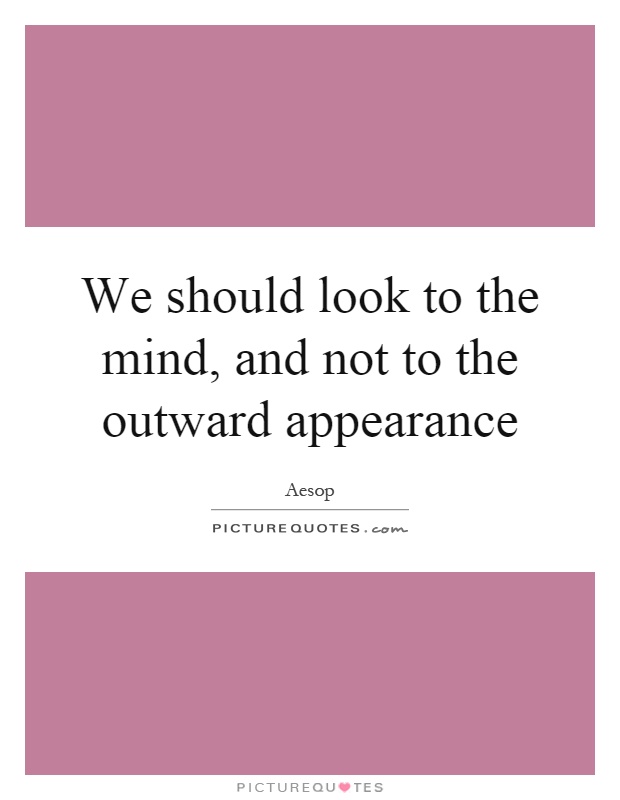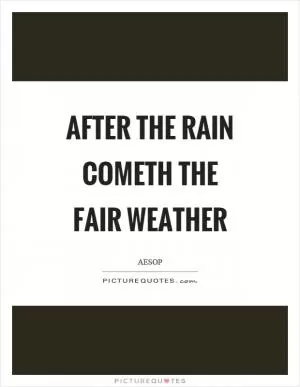
We should look to the mind, and not to the outward appearance

We should look to the mind, and not to the outward appearance
In the fables of Aesop, the ancient Greek storyteller, there are numerous tales that emphasize the importance of looking beyond outward appearances and focusing on the true nature of a person or situation. One such fable is that of "The Fox and the Grapes," in which a hungry fox tries in vain to reach a bunch of grapes hanging high on a vine. After several failed attempts, the fox gives up and declares that the grapes are probably sour anyway. This fable teaches us that it is easy to dismiss something we desire but cannot attain by convincing ourselves that it is not worth having in the first place.Similarly, in the fable of "The Tortoise and the Hare," Aesop tells the story of a slow and steady tortoise who wins a race against a fast but arrogant hare. The hare, confident in his speed and abilities, takes a nap during the race and ultimately loses to the persevering tortoise. This fable teaches us that outward appearances can be deceiving, and it is important to not underestimate others based on superficial qualities.
Aesop's fables often highlight the importance of looking to the mind rather than the outward appearance. In the fable of "The Lion and the Mouse," a tiny mouse is able to save a mighty lion by gnawing through a net that has trapped him. The lion, initially dismissive of the mouse due to its small size, learns to appreciate the mouse's bravery and resourcefulness. This fable teaches us that even the smallest and seemingly insignificant individuals can possess great qualities and make a significant impact.
Overall, Aesop's fables serve as timeless lessons on the importance of looking beyond outward appearances and recognizing the true worth of individuals based on their character, actions, and intentions. By focusing on the mind rather than superficial qualities, we can gain a deeper understanding of others and cultivate empathy, compassion, and respect for all beings.












 Friendship Quotes
Friendship Quotes Love Quotes
Love Quotes Life Quotes
Life Quotes Funny Quotes
Funny Quotes Motivational Quotes
Motivational Quotes Inspirational Quotes
Inspirational Quotes